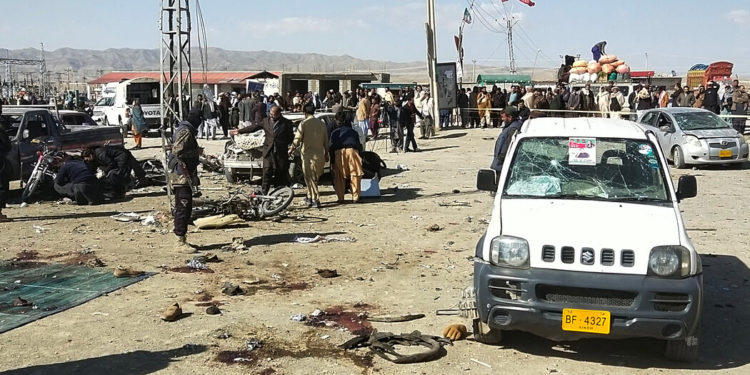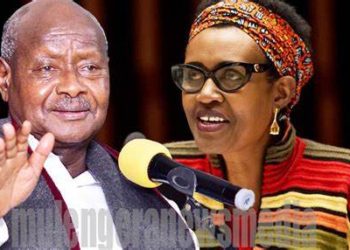By THE NEW YORK TIMES
Two separate explosions outside election offices in an insurgency-hit area of Pakistan killed at least 22 people and wounded several others on Wednesday, officials said, a deadly reminder of the deteriorating security situation in the country as it heads into national elections on Thursday.
In light of such security threats, the Pakistani authorities have designated half of the country’s approximately 90,000 polling stations as “sensitive” or “most sensitive” and have deployed the military to secure them.
“Rest assured, we will not allow terrorists to undermine or sabotage this crucial democratic process,” Jan Achakzai, the information minister in the province where Wednesday’s blasts occurred, said on social media.
But such attacks against election-related activities, including the targeting of candidates, have surged as Pakistan’s campaign season has ramped up. At least 21 attacks occurred in January, killing 10 people and injuring 25, according to the Pakistan Institute for Conflict and Security Studies, an Islamabad-based think tank. Two candidates lost their lives, and several candidates narrowly escaped harm.
The local affiliate of the Islamic State and several Pakistani ethnic separatist groups have taken responsibility for attacks on election candidates and rallies in recent weeks.
The first blast on Wednesday occurred outside the election office of an independent candidate, Asfandyar Kakar, in the Pishin district of Balochistan Province, about 45 miles from the provincial capital, Quetta. Dr. Habib ur Rehman, a district health official, said that at least 14 people had been killed in the attack.
The explosion was so powerful that many died instantly, said Sharif Agha, a supporter of Mr. Kakar’s who witnessed the event. “People were screaming, and bodies were scattered everywhere,” Mr. Agha said.
The Islamic State claimed responsibility for that blast, saying in a message on its Telegram channel on Wednesday that its fighters “blew up a motorbike” rigged with explosives “at an election gathering” in the Pishin district, according to Reuters and other news outlets.
Shortly after the first blast, a second explosion occurred outside an election office of Jamiat Ulema-e-Islam-Fazl, an Islamist party, in Qila Saifullah, a neighboring district that also borders Afghanistan.
Terrorism has surged in Pakistan, a country of 240 million, since the Taliban took power in neighboring Afghanistan in 2021. Most of the attacks have been carried out by the regional Islamic State affiliate, known as the Islamic State Khorasan, or ISIS-K, and by the Pakistani Taliban, also known as Tehrik-i-Taliban Pakistan, an ally and ideological twin of the Taliban in Afghanistan.
ISIS-K claimed responsibility for a Jan. 30 bomb attack on a rally of a candidate from Pakistan Tehreek-e-Insaf, the party led by the ousted prime minister Imran Khan. At least four people were killed in that attack, which occurred in the Sibbi district of Balochistan.
The surge in violence has fueled tensions between Taliban officials in Afghanistan and the Pakistani government, which has accused the Taliban of offering safe haven to the Pakistani Taliban on Afghan soil — a claim that Taliban officials deny.
The attacks have also stoked fears that the region could become a hotbed of international terrorism in the wake of the 2021 American withdrawal from Afghanistan.
Christina Goldbaum contributed reporting.







Discussion about this post